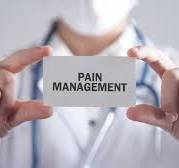Controlling Pain: Strategies for Managing Discomfort
Pain is a universal human experience that can range from mild discomfort to debilitating agony. Whether it’s acute or chronic, finding ways to control and manage pain is essential for improving quality of life and overall well-being.
Understanding Pain
Pain serves as a warning signal from the body that something is wrong. It can be caused by various factors such as injury, illness, or underlying medical conditions. By understanding the source and nature of pain, individuals can better address and alleviate their discomfort.
Strategies for Pain Control
There are several strategies that can help individuals control and manage pain effectively:
- Medication: Over-the-counter or prescription medications can help alleviate pain symptoms. It’s important to follow medical advice and dosage instructions when using pain medication.
- Physical Therapy: Engaging in physical therapy exercises and techniques can improve mobility, reduce stiffness, and alleviate pain associated with musculoskeletal issues.
- Mind-Body Techniques: Practices such as meditation, deep breathing exercises, yoga, and mindfulness can help individuals relax their bodies and minds, reducing the perception of pain.
- Heat/Cold Therapy: Applying heat packs or cold compresses to the affected area can provide relief by reducing inflammation and numbing nerve endings.
- Dietary Changes: Consuming anti-inflammatory foods and maintaining a healthy diet rich in nutrients can support the body’s natural healing processes and reduce pain symptoms.
- Alternative Therapies: Techniques such as acupuncture, massage therapy, chiropractic care, and aromatherapy have been shown to help manage pain and promote relaxation.
Seeking Professional Help
If pain persists or worsens despite trying various self-care strategies, it’s crucial to seek professional help from healthcare providers such as doctors, physical therapists, or pain management specialists. They can offer personalized treatment plans tailored to individual needs and conditions.
Remember that everyone experiences pain differently, so finding the right combination of strategies that work best for you is key to effectively controlling discomfort and improving your quality of life.
Top 8 Frequently Asked Questions About Pain Management and Control
- What causes pain?
- How can I effectively manage acute pain?
- What are the common treatments for chronic pain?
- Are there non-pharmacological methods to control pain?
- Can lifestyle changes help in reducing pain symptoms?
- What role does stress play in exacerbating pain?
- Are there alternative therapies that can alleviate pain?
- When should I seek professional help for managing my pain?
What causes pain?
Pain can be caused by a variety of factors, including injury, illness, inflammation, nerve damage, or underlying medical conditions. When the body detects tissue damage or dysfunction, it sends signals to the brain that are interpreted as pain. These signals serve as a protective mechanism to alert us to potential harm and encourage actions that promote healing and recovery. Understanding the root cause of pain is crucial in developing effective strategies for managing and alleviating discomfort. By addressing the underlying factors contributing to pain, individuals can work towards improving their overall well-being and quality of life.
How can I effectively manage acute pain?
Managing acute pain effectively involves a multifaceted approach that aims to alleviate discomfort and promote healing. One key strategy is to use over-the-counter or prescription pain medications as directed by a healthcare provider to help reduce pain intensity. Additionally, applying ice or heat packs to the affected area can help decrease inflammation and provide temporary relief. Engaging in gentle stretching exercises or physical therapy under professional guidance can improve mobility and reduce muscle tension associated with acute pain. Mind-body techniques such as deep breathing, relaxation exercises, and mindfulness can also play a crucial role in managing acute pain by promoting relaxation and reducing stress levels. It’s important to consult with a healthcare professional to develop a comprehensive treatment plan tailored to your specific needs and condition for effective management of acute pain.
What are the common treatments for chronic pain?
Common treatments for chronic pain often include a combination of approaches to effectively manage and alleviate discomfort. These may include medications such as analgesics, anti-inflammatory drugs, or antidepressants to target different aspects of pain. Physical therapy and exercise programs tailored to improve strength, flexibility, and mobility can also play a significant role in reducing chronic pain. Additionally, complementary therapies like acupuncture, massage therapy, cognitive-behavioral therapy (CBT), and relaxation techniques are commonly utilized to address the physical and psychological aspects of chronic pain. It is important for individuals with chronic pain to work closely with healthcare providers to develop a comprehensive treatment plan that addresses their specific needs and enhances their quality of life.
Are there non-pharmacological methods to control pain?
Yes, there are non-pharmacological methods available to help control pain. These methods focus on managing pain without the use of medications. Non-pharmacological approaches include techniques such as physical therapy, acupuncture, massage therapy, cognitive-behavioral therapy, relaxation techniques, meditation, and mindfulness. These alternative methods can be effective in reducing pain levels, improving overall well-being, and providing individuals with additional tools to manage their discomfort. It’s important to explore these non-pharmacological options in conjunction with medical advice to determine the most suitable approach for each individual’s unique pain management needs.
Can lifestyle changes help in reducing pain symptoms?
Lifestyle changes can indeed play a significant role in reducing pain symptoms. By adopting healthy habits such as regular exercise, maintaining a balanced diet, managing stress effectively, getting an adequate amount of sleep, and avoiding harmful substances like tobacco and excessive alcohol, individuals can positively impact their pain levels. Physical activity can help strengthen muscles, improve flexibility, and release endorphins that act as natural painkillers. Additionally, a nutritious diet rich in anti-inflammatory foods can reduce inflammation and support overall wellness. Managing stress through relaxation techniques like meditation or yoga can also alleviate tension-related pain. Making these lifestyle adjustments can complement other pain management strategies and contribute to a more holistic approach to controlling discomfort.
What role does stress play in exacerbating pain?
Stress can significantly exacerbate pain by triggering physiological responses in the body that intensify discomfort. When we experience stress, our bodies release hormones like cortisol and adrenaline, which can heighten sensitivity to pain signals. Chronic stress can also lead to muscle tension, inflammation, and a compromised immune system, all of which contribute to increased pain perception. Additionally, stress can impact sleep quality, mood regulation, and overall well-being, further influencing how we perceive and cope with pain. Managing stress through relaxation techniques, mindfulness practices, and stress-reducing activities can play a crucial role in alleviating pain and improving overall health outcomes.
Are there alternative therapies that can alleviate pain?
Alternative therapies offer a holistic approach to pain management, providing individuals with additional options beyond traditional medication. Techniques such as acupuncture, massage therapy, chiropractic care, and aromatherapy have shown promise in alleviating pain and promoting overall well-being. These therapies focus on addressing the root causes of pain, reducing inflammation, improving circulation, and promoting relaxation. Many individuals find relief and comfort through alternative therapies, appreciating the natural and non-invasive methods they offer for controlling pain. It’s important to consult with healthcare providers to explore which alternative therapies may be suitable for specific types of pain and individual needs.
When should I seek professional help for managing my pain?
Knowing when to seek professional help for managing pain is crucial for effectively addressing discomfort and improving your quality of life. If your pain persists or worsens despite trying self-care strategies such as medication, physical therapy, or mind-body techniques, it may be time to consult healthcare providers. Consider seeking professional help if your pain interferes with daily activities, affects your mental well-being, or if you experience new or concerning symptoms. Healthcare professionals can offer expert guidance, personalized treatment plans, and specialized care to help you better manage and alleviate your pain. Remember that timely intervention and appropriate medical support can make a significant difference in how you cope with and overcome persistent pain.




